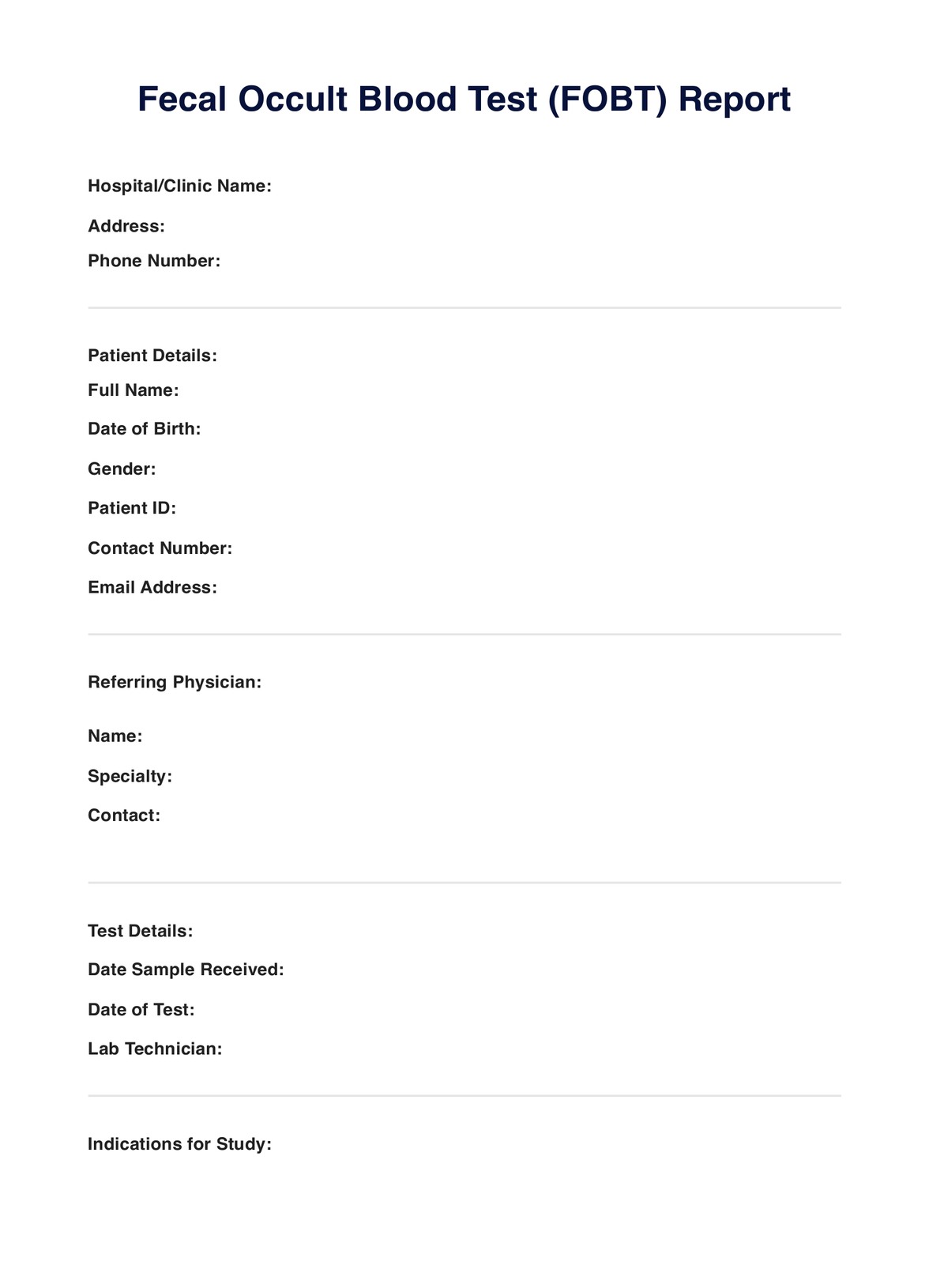Doctors typically recommend a Fecal Occult Blood Test for individuals with a family history of colon cancer, over 50, or with symptoms such as rectal bleeding or unexplained weight loss.

Get insights on Fecal Occult Blood Tests, a crucial tool for early detection of digestive system issues, including colorectal cancer. Learn more today.
Doctors typically recommend a Fecal Occult Blood Test for individuals with a family history of colon cancer, over 50, or with symptoms such as rectal bleeding or unexplained weight loss.
Fecal Occult Blood Tests are used in routine colon cancer screening for individuals without symptoms and for screening individuals with symptoms such as rectal bleeding or unexplained weight loss.
Fecal Occult Blood Tests detect microscopic amounts of blood in the stool that may not be visible to the naked eye. It involves collecting a small sample of stool using a test kit.
EHR and practice management software
*No credit card required
Free
$0/usd
Unlimited clients
Telehealth
1GB of storage
Client portal text
Automated billing and online payments